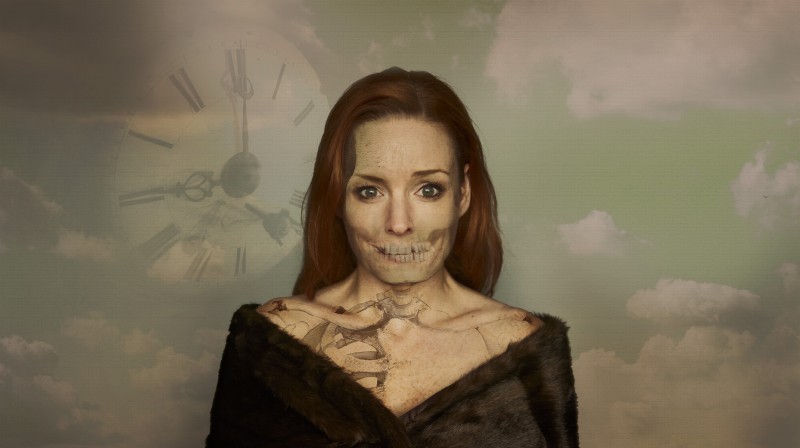 ‘The nine o’clock slot’ is the typical time for a pauper’s funeral. It’s the slot no one else is likely to buy. There won’t be any guests, or any grave stone, and the priest may lead the ceremony alone. It’s a startling opening premise for any production, particularly one already on slightly intimidating ground by concentrating its focus on experiences of death and dying. I approach the nattily done up Red Gallery, its frontage restyled as an old fashioned funeral parlour, with some trepidation about a potentially bleak night ahead.
‘The nine o’clock slot’ is the typical time for a pauper’s funeral. It’s the slot no one else is likely to buy. There won’t be any guests, or any grave stone, and the priest may lead the ceremony alone. It’s a startling opening premise for any production, particularly one already on slightly intimidating ground by concentrating its focus on experiences of death and dying. I approach the nattily done up Red Gallery, its frontage restyled as an old fashioned funeral parlour, with some trepidation about a potentially bleak night ahead.
The company have approached this challenge in content by throwing everything they’ve got at the production. There’s an opening installation, a coffin is carried along the street and through the venue doors, and the back corner of a graveyard is conjured in the foyer (becoming something quite different by the time we track back through at the end); there’s 360° video design, adding texture and location to the multiple stories told; there’s an immersive set which places us the audience right within the world of sleazy bars and tube stations and hospices; there are numbers that are sung giving the form at times an air of agitprop; and there’s a full two hours of storytelling, in one enormous single seating. There’s a wealth of material here and, as implicit in the in-the-round staging, a dizzying range of perspectives on offer. It’s a great choice to place us fully within the world and the tricky in the round staging is generally well-handled by director Lisa Spirling, though at a cost of some of the stage and video imagery. The world is drawn in full with no minor characters – the production takes the time to develop everyone from the traumatised witness of a trackside suicide to the hospice nurse conflicted about the (now controversial) Liverpool care pathway.
The cast of six multirole effectively to achieve some very strong performances in this intimate setting. Drawing their material from real biographies, the company have developed moving and intriguing stories about the sort of experiences rarely dramatised – the story of a dying alcoholic is especially powerful and it’s good, and important, to hear these voices on stage. But the plenitudinous approach also has its casualties, and the sheer ambition of the piece means that some moments with other characters feel sacrificed. The inclusive dramaturgy loses a sense of rhythm and parts of the storytelling feel shapeless and overlong as a result. The production attempts to integrate the closing chapters of four whole lives, along with their own supporting characters, and this feels like too much, however interesting the stories: the company need a little more faith in their material – they can do it justice with less.
The show’s in-depth, research-led approach is undoubtedly influenced by its backing through the Wellcome Trust, an increasingly present funder in the contemporary performance landscape. As such, these questions about balancing content with story are worth further exploration by this company and others. The Nine O’Clock Slot is perhaps one revision away from really firing, but amongst the wealth of material on offer there’s still much to enjoy on this most provocative of subjects.
